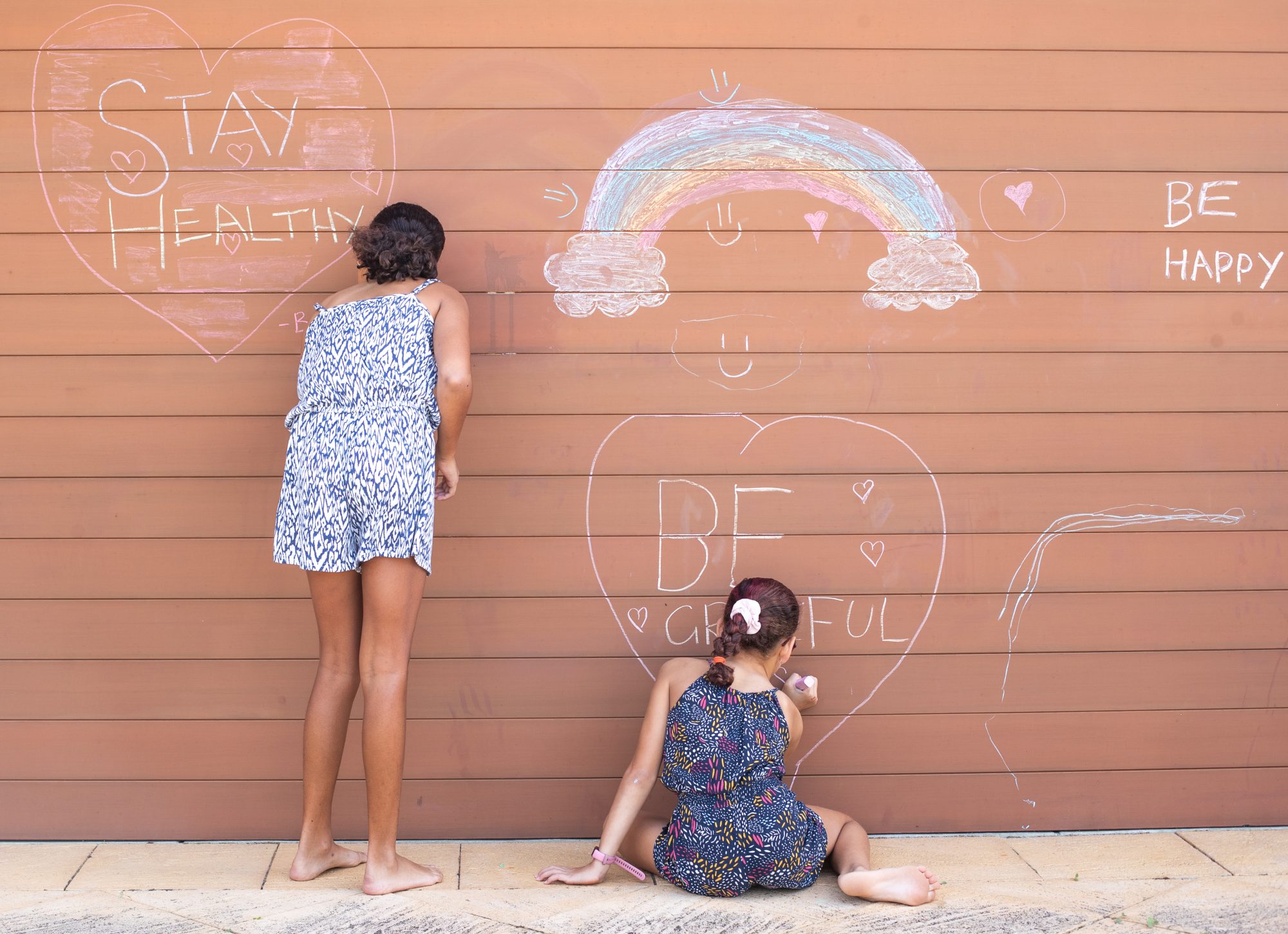
Since the first case of coronavirus in the United States in February 2020, countless families have been hit with the virus—and many have lost loved ones. The total has reached a staggering 400,000 deaths, with many others living with lingering long term symptoms of the virus. Now, nearly a year later, the country will honor those lost to the virus on January 19. To commemorate all those affected by COVID-19, there will be a memorial in Washington D.C. and cities around the country will hold their own memorials.
As we face yet another unpredictable year, there is one thing that remains in our control: We can choose to face the challenges of COVID-19 together. Here are ways your family can help lessen the effects of the pandemic and better our future as a nation—today and every day.
1. Honor COVID-19 Victims in Your Community
The day before the inauguration, President-elect Joe Biden will participate in a lighting ceremony at the Lincoln Memorial Reflecting Pool at 5:30 p.m. EST. The reflecting pool will be decorated with 400 lights to honor the 400,000 Americans who have died throughout the pandemic.
The inauguration committee is also encouraging churches to ring bells and communities to light memorials across the country as a "national moment of unity and remembrance."
"In the midst of a pandemic, when so many Americans are grieving the loss of family, friends, and neighbors, it is important that we honor those who have died, reflect on what has been one of the more challenging periods in the nation's history, and renew our commitment to coming together to end the pandemic and rebuild our nation," inauguration committee spokesman Pili Tobar said in a statement.
Other cities offering ways to honor the victims of COVID-19 include:
You can watch the D.C. events virtually, including an invocation by Cardinal Wilton Gregory, Archbishop of Washington, and a rendition of "Amazing Grace" by Lori Marie Key, a 29-year-old nurse from Michigan who went viral during the peak of the first wave of the pandemic in April for singing the song at the hospital where she works.
2. Fight Food Insecurity and Donate Meals
Many families are experiencing food insecurity across the country during the pandemic (the U.S. is one of the only countries not offering continuous assistance throughout the pandemic for those furloughed or out of work due to public safety shutdowns). So if you are able to financially contribute, you can donate to Feeding America to help feed families in need.
You can also contact your local and federal government representatives to make sure they are supporting coronavirus relief packages that will help families both now and as we recover from this crisis.
3. Volunteer Together
Make some time during your family's schedule to give back to your community. Some socially distanced good deeds include picking up trash around your neighborhood (don't forget the gloves!) or making cards for neighbors who might be lonely. But don't worry if you can't work a food bank line yourself. Volunteer Match has a database of virtual opportunities to help give back during the pandemic.
4. Wear a Mask and Ensure Kids Do, Too
Wearing a mask when you go outside one of the best acts of kindness your family can do during the coronavirus pandemic. As we all know by now, masks severely limit the spread of the virus by blocking potentially dangerous particles from getting outside (or inside) of your mask. With new extremely contagious COVID-19 variants spreading, there's never been a better time to lock in your family's mask habit—especially considering many people who have the virus might not show symptoms until days after they are contagious.
Getting kids to wear masks and keep them on can be a battle, but it's one worth fighting. The Centers for Disease Control and Prevention recommends that kids over the age of two should wear masks in public but younger kids should go without. That's because younger toddlers have smaller airways and could find it difficult to breathe while wearing a face mask.
5. Stay Home When You Can
Experts have been warning for months that winter 2021 could be some of the darkest days of the pandemic. COVID fatigue is hitting hard, but the numbers speak for themselves. More than 123,000 Americans are currently hospitalized with COVID-19; there were about 150,000 new coronavirus cases on January 18 alone, according to the COVID Tracking Project. The pandemic is at a worse place than it was in the spring when everyone hunkered down to protect each other. So it's good to stay home whenever possible, experts say.
Limiting activities and outings not only cuts down on the amount of exposure your family gets to people who might have the virus, but it also helps people who can't stay home like doctors, pharmacists, grocery store workers, and other essential workers—fewer people out and about means they have less exposure too.
6. Get the COVID-19 Vaccine When You’re Eligible
The good news: We have two vaccines (the Moderna and Pfizer vaccines) that are proven to protect people against the coronavirus and more could be ready soon. More than 10 million people have already gotten the first of two shots of their COVID-19 vaccines. According to Anthony Fauci, M.D., director of the National Institute of Allergy and Infectious Diseases, we need 90 percent of people—AKA almost everybody—to get the vaccine to stop the virus. So once your family is eligible, getting the vaccine is a great way to help end the coronavirus crisis.
For more information about the COVID-19 vaccine, see:





